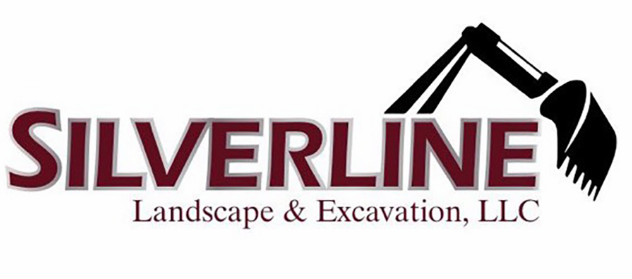
Drain Field Replacement vs. Repair: Which One Does Your Fort Collins Home Really Need?
Something’s Off With Your Septic—Now What?
You’ve noticed something weird.
Maybe it started with a soft, mushy spot in your yard. Or maybe your drains got slow all of a sudden. You might even be dealing with something worse—like sewage backing up into your house.
Whatever tipped you off, something’s clearly wrong with your septic system.
And now you’re staring down a big question:
Do I need to replace my drain field… or can it be repaired?
If you’re like most homeowners we’ve helped here in Fort Collins and throughout Northern Colorado, you’re not looking to throw money at a problem that could be fixed more affordably. But you also don’t want to patch something that’s already on its last legs.
We get it. This stuff can be confusing and stressful. So let’s break it down—plain and simple.
What a Drain Field Actually Does (And Why It Matters)
A lot of folks don’t even realize what a drain field is—until it stops working.
Think of your septic system like a team. The tank does the first job: holding and breaking down solid waste. The drain field is the finisher. It takes the filtered wastewater from your septic tank and releases it slowly into the soil, where it’s naturally cleaned.
When the drain field’s working, everything’s great. When it’s not? Things back up fast. You might notice standing water, bad smells, soggy patches in your yard, or toilets that won’t flush.
Common Drain Field Problems We See in Fort Collins, Larimer & Weld Counties
Drain fields don’t fail all at once. Most issues start small and get worse over time—especially with the unique soil and seasons we deal with in Northern Colorado.
Here are the most common problems we run into:
Clogged lines – Grease, sludge, and solids can sneak past the tank and plug up your drain field pipes.
Oversaturation – Heavy rain, snowmelt, or high groundwater levels can overwhelm the field, especially in clay-heavy soils.
Tree root intrusion – Roots from trees or shrubs nearby can crack or block the drain lines.
Aging systems – Most drain fields aren’t built to last forever. If yours is 25+ years old, it might be nearing the end.
Compacted soil – Heavy equipment, vehicles, or even foot traffic can crush the soil’s ability to absorb wastewater.
The big question is: can those problems be fixed? Or do they mean it’s time to start over?
Can It Be Repaired… or Does It Need to Be Replaced?
Let’s get one thing straight—not every drain field needs to be replaced.
But also, not every repair is worth the money.
Here’s how we usually break it down for homeowners around Fort Collins:
✅ A Drain Field Can Usually Be Repaired If...
The problem is isolated (like a single crushed or clogged pipe)
The system is less than 20 years old
There’s no major standing water or sewage surfacing
The soil is still absorbing water properly
❌ It Probably Needs Replacement If...
The drain field is failing in multiple areas
The soil is totally saturated and can’t drain
The system’s over 25 years old
You’ve already repaired it once (or twice) before
Sewage is backing up into your home
We always start with an inspection. At Silverline Excavation, we’d rather repair something if it makes sense. But sometimes replacement is the only real long-term fix—especially if you’re trying to avoid dealing with the same problem again next year.
Cost Comparison: Drain Field Repair vs. Full Replacement in Northern Colorado
Let’s talk dollars—because we know this part can keep people up at night.
These are ballpark numbers, based on recent projects around Larimer and Weld Counties:
Service
Average Cost (Northern CO)
Minor Drain Field Repair
$800 – $2,500
Line Replacement or Partial Repair
$3,000 – $6,000
Full Drain Field Replacement
$7,500 – $20,000+
Things that affect cost:
Size of your system
Depth and type of soil
Distance from your home or tank
Whether permits, pumping, or new trenches are needed
Repairs are cheaper up front, no question. But they can also add up fast if you’re patching the same problem every year.
We’ve had homeowners spend $5,000 on repairs over three years—only to end up replacing the whole system anyway. That’s why honest inspection and a realistic long-term plan matter.
What Local Homeowners Regret Most (And How to Avoid It)
You wouldn’t believe how many people call us saying,
“I wish we had just replaced it the first time.”
Here are the two biggest regrets we hear:
Waiting too long to get it looked at.
A small fix becomes a major mess (and a bigger bill).Going with the cheapest bid without checking reviews or asking questions.
Drain field work isn’t just digging a hole. It’s about understanding your soil, your system, and your future needs.
Do your homework. Ask neighbors. Read reviews. A few extra hours now can save you thousands later.
How to Know What’s Right for Your Property
Every home is different, but here’s what we look at when helping you decide:
Soil type: Sandy soil drains faster than clay or rocky soil.
System age: Newer systems might just need tweaks. Older ones? Not so much.
Tank condition: A failing tank can ruin a good drain field.
Household size: More people = more water = more stress on the system.
Previous repairs: Patchwork only holds up so long.
We use soil testing, inspection tools, and a whole lot of local experience to figure out the best path. And we walk you through it—no pressure, no jargon, no upselling.
Working With a Team That Doesn’t Jump to Replace Everything
At Silverline Excavation, we’re not the biggest firm around—and we don’t want to be.
We’d rather be the team that listens, asks the right questions, and gives you real options. Some folks just need a few lines replaced. Others need a new field, but don’t know where it should go or how deep to dig.
That’s our sweet spot—customizing the plan to your property. We’ve worked with all kinds of systems, soils, setbacks, and surprises. Septic isn’t glamorous, but we’re kind of nerdy about getting it right.
Next Steps: What to Do If You Think Your Drain Field’s in Trouble
If something feels off, don’t wait. Drain field issues don’t magically fix themselves—and they sure don’t get cheaper.
Here’s what you can do today:
Pay attention.
If you’ve got pooling water, smells, or slow drains—take notes.Stop using too much water.
Take shorter showers. Hold off on laundry. Give your system a breather.Reach out for an inspection.
Whether it’s us or someone else—make sure they know local soils and septic codes.Ask questions.
Good contractors want you to understand the process, not just write a check.
Need Help in Northern Colorado? We’re Here When You’re Ready.
We’re not here to sell you something you don’t need. We’re here to help you figure out what makes sense for your yard, your system, and your peace of mind.
If you’re in Wellington, Fort Collins, Loveland, Greeley, or anywhere across Larimer or Weld Counties—we’d be happy to take a look and walk you through the options.
Whether it’s repair or replacement, you deserve answers that make sense. Let’s get your yard (and your plumbing) back to normal.


